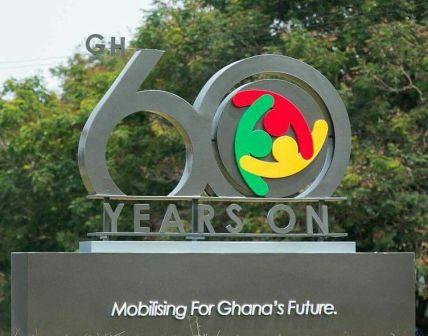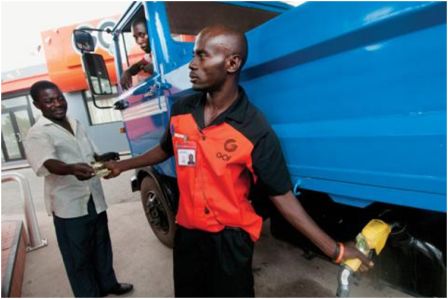How much would Ghana miss Essien?
At their first World Cup four years ago, Ghana’s campaign came off the wheels when Chelsea star and midfielder Michael Essien missed the second round clash against Brazil.
Even with him the Black Stars’ hopes were slim but without a man whose group displays were heroic, those hopes were wafer-thin – as shown when Brazil won 3-0.
Now Ghana’s World Cup dreams are being revised again with the news the midfielder may not just miss the last five months of Chelsea’s season but June’s finals as well, because of a nagging knee problem.
“Until I know how the injury improves, it’ll be difficult to say whether I’ll make the World Cup,” he told Ghanaian media this week.
“If not, I’ll have to sit at home and support the team like every Ghanaian. It would be a disappointment but the World Cup is the best and most difficult football tournament in the world, and I’d rather be there fully fit.”
Essien’s absence would be a hammer blow to Ghana’s hopes – ‘indispensable’ is what one former national coach calls him – but his potential absence would be mollified by one thing: the West Africans’ outstanding production line of midfield talent.
A trip back in time conjures up names like Ibrahim Sunday, Abdul Razak, Abedi Pele, all former African Footballers of the Year and Nii Lamptey, the current generation – Essien, Stephen Appiah, Sulley Muntari – as well as the new breed, Agyemang Badu and Kwadwo Asamoah, who excelled in January’s Nations Cup in Angola.
As many Ghanaians will tell you, this is not coincidental, merely the result of the country’s most popular kick-about, a game called small posts where there are two tiny goals with no set goalkeeper on a crowded and cramped field – meaning the game finely hones players’ dribbling and passing, skills that are invaluable to a midfielder.
Essien’s season has been dogged by a persistent knee problem
Should Essien be unavailable, coach Milovan Rajevac can be grateful to small posts that his back-ups have such quality – Udinese midfielder Asamoah, 21, for one.
He’s one of five Italy-based players likely to make the squad, up from one in 2006, while the tally in England, just Essien at the last finals, will be four if the ‘Bison’ makes it (five if you include the bid to recruit Kevin-Prince Boateng).
For many years, Ghana’s overachieving Black Stars were – conversely – African football’s great underachievers. African champions in 1963 and 1965, the Ghanaians repeated the feat in 1978 and 1982 – but without ever qualifying for the World Cup.
After Ghana’s last title, a long period of failure followed at senior level – with the potentially golden years of Abedi Pele and Tony Yeboah ruined by the duo’s personal enmity.
But things changed at the start of the millennium.
The Ghana FA (GFA) became professional, well led by the ever-smiling Kwesi Nyantakyi, and with bonuses promptly paid and larger than ever (reportedly US$10,000 (£6,500) per man per win in Angola) team morale is no longer affected by broken promises.
When Serbian Ratomir Dujkovic took charge in 2004, he exploited the burgeoning unity by fine-tuning a side featuring arguably Africa’s best midfield – Muntari, Essien, Appiah and Laryea Kingston – to finally end the World Cup agony.
And the Black Stars didn’t disappoint in Germany, losing to champions Italy before beating the Czechs and the United States to make the knockout stage at the first time of asking.
In 2008, as qualifying for this summer’s finals got under way, the GFA wanted a Serb coach again – bringing in Rajevac, who’d known relative success with various clubs back home and who’s since converted a heavily-sceptical media with his discipline and shrewd stewardship.
Despite a tough group, Ghana were Africa’s earliest qualifiers for the continent’s first World Cup and then, despite the absences of Essien, Appiah, John Mensah, John Pantsil, Kingston and Muntari (dropped for indiscipline), Rajevac defied the odds by leading a patched-up side to the Nations Cup final with a succession of 1-0 wins.
“When I got this job, I studied so many DVDs and concluded there was plenty of space for defensive improvement,” the Serb explains.
“The defence was conceding soft goals, with players in bad positions, so I improved that part of our game.”
The unassuming Rajevac helped himself by fielding five Black Satellites, who won Africa’s first U20 World Cup last year, in Angola: marauding right-back Samuel Inkoom, midfielders Emmanuel Agyemang-Badu, Opoku Agyemang and Andre ‘Dede’ Ayew (Pele’s son), and striker Dominic Adiyiah, now of AC Milan.
They’re in line to make Rajevac’s squad – as are Wigan keeper Richard Kingson, on-form Rennes striker Asamoah Gyan and all the returning Angola absentees, even Inter’s Muntari (who’s reconciled his differences with the coach) and Bologna’s Appiah , likely to be recalled despite next-to-no playing time over the last two years.
While Angola gave Rajevac a selection headache most coaches would love, and he says he’ll go for the right blend of youth and experience, he knows Group D – comprising Germany, Australia and Serbia – won’t be easy.
Ghana’s super-optimistic fans will be traditionally confident but emerging above the Germans or Serbs, real dark horses come June, will require the resilience and concentration so impressively displayed in January.
Ghana’s opener with Serbia on 13 June should be fascinating considering Rajevac’s insight into his home nation while the Europeans have their own insider – the Serbs’ current U21 coach being a certain R Dujkovic.
The latter led Ghana onto football’s greatest stage for the first time, meaning the bright lights that dazzled some may since have dimmed.
“Before playing Brazil, some of our reserves were just gawping at Ronaldinho as they warmed up,” says former Ghana coach Cecil Jones Attuquayefio.
“Because we hadn’t rubbed shoulders with the best before Germany 2006 – but then we played Italy and Brazil, and our standards have risen. We can reach the quarter-finals.”
To do that, they might just have to beat England.
Piers Edwards, UKStay with Sierra Express Media, for your trusted place in news!
© 2010, https:. All rights reserved.





